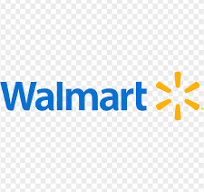Groups Call for Boycotts
- Charles Reams

- Apr 19, 2025
- 3 min read
Economic blackout this weekend boycotts key stores
(Ad: Phinney’s Buffet is open Sunday with regular hours.)
Another economic blackout is coming to the United States, coinciding with Good Friday through Easter Sunday.
Boycotts and blackouts have become common since President Donald Trump took office for the second time. The Citizen Times previously covered the 40-day "Target Fast," which ends April 17, the recent Walmart boycott, and the first "economic blackout," which took place for 24 hours on Feb. 28.

The organizers of the first blackout, grassroots organization The People's Union USA, are also responsible for the upcoming spending freeze. The second blackout, however, targets a larger list of companies and lasts longer than the original 24 hours.
Here's what consumers should know about the blackout, other upcoming boycotts, and more.
Economic blackout dates; when is the economic blackout?
The People's Union USA is calling for a three-day spending freeze beginning on Friday, April 18 — also Good Friday — and ending on Sunday, April 20 — the same day as Easter.
What is an economic blackout?
A post on the People's Union USA website, also posted on People's Union leader John Schwarz's Instagram, explains that during the economic blackout, the organization urges consumers not to participate in big box shopping/spending and to support local businesses only.
"We shut it down. We are the economy," the post reads.

What not to buy during the economic blackout; which companies are being boycotted?
Consumers are urged not to buy from major retailers online or in person, including groceries and gas. On the People's Union USA website at thepeoplesunionusa.com/consumer-awareness, a list of corporations "known for exploitation, price gouging or unethical practices" was provided.
"These companies have been repeatedly criticized for tax avoidance, poor labor practices, lobbying against workers’ rights, or manipulating pricing during inflation," an explanation of the list reads.
The website also reminds consumers that more companies will be added as "more research and reports come out." The list included the following companies:
Amazon
Walmart
Nestlé
Monsanto
Coca-Cola
Chevron
Nike
Meta (Facebook)
Google/Alphabet
Comcast
McDonald’s
A separate list of companies with "neutral or questionable" policies was also published, including Apple, Starbucks, Target, PepsiCo and Microsoft. A third and final list compiled "companies doing it better," companies that the People's Union USA has observed taking "steps toward fair wages, ethical sourcing, and supporting workers or communities."
Why boycott?
"This blackout isn’t symbolic. It’s strategic. We are the economy," the People's Union USA website reads. "We are the machine they profit off of. And it’s time to show them what happens when the machine stops."
The People's Union USA has urged consumers to speak with their wallets, condemning the actions of big-name retailers who they say "hoard wealth, while the working class struggles."
Did the last economic blackout work? What to know about Feb. 28 blackout
While difficult to gauge, data from several firms suggested the Feb. 28 blackout had "some potential impact" on sales for large retailers including Target, Walmart and Amazon, according to a USA TODAY report.
When does the Walmart blackout end?
The Walmart blackout ended on Monday, April 14. The People's Union USA asked consumers to avoid spending at Walmart stores or supercenters, online, on apps, through subscription services, and at affiliates such as Sam's Club.
When does the Target boycott end?
The Target boycott, organized by an Atlanta pastor and other faith leaders, encourages shoppers not to spend at the retail chain during the 40-day season of Lent, which ends at sundown on Thursday, April 17. It is not affiliated with the People's Union USA.
When is the next boycott? General Mills boycott, Amazon boycott next
Schwarz has also outlined several dates for blackouts or boycotts this spring and summer:
Second economic blackout: April 18-20
General Mills boycott: April 21-28
Second Amazon boycott: May 6-12
Second Walmart boycott: May 20-26
Target boycott: June 3-9
McDonald's boycott: June 24-30
Independence Day boycott: July 4


